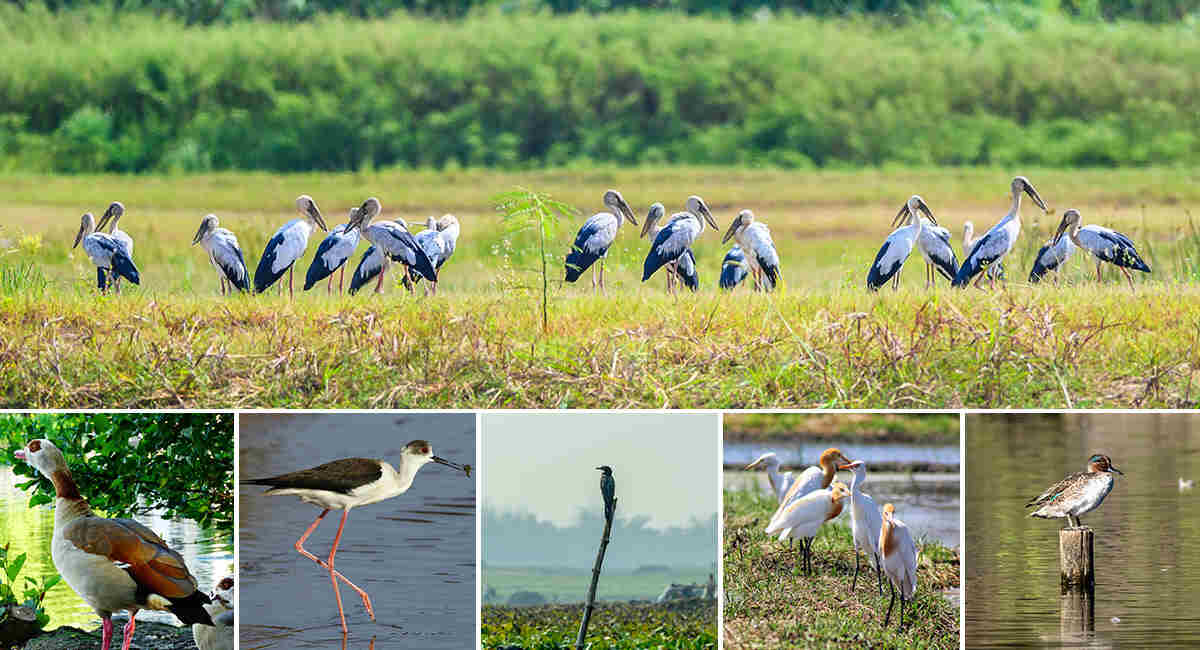Mangalajodi, Odisha – A Hidden Paradise for Bird Lovers
Set away on the northern fringes of the sprawling Chilika Lake in Odisha, Mangalajodi is a serene village that has quietly become one of India’s most enchanting birdwatching destinations. With its tranquil wetlands, lush reed beds, and remarkable avian diversity, Mangalajodi offers a soulful escape into nature. Far from the bustling tourist circuits, this eco-tourism haven provides a unique blend of biodiversity, local culture, and inspiring conservation efforts.
A Village Reborn: From Poachers to Protectors
Mangalajodi wasn’t always a peaceful sanctuary. Not too long ago, it was infamous for rampant bird poaching. For the villagers, hunting migratory birds was a way of life—a means of survival. The wetlands, once a battlefield of nets and traps, are now a protected haven thanks to a remarkable transformation.
With support from dedicated conservationists and NGOs, a handful of villagers began to reimagine a different future—one where birds weren’t prey but pride. Slowly, poachers laid down their weapons and became stewards of the land. They received training, found new purpose as birding guides, and began educating others. What followed is one of India’s most successful community-driven conservation stories.
Today, Mangalajodi is a shining example of how people and wildlife can coexist harmoniously. It’s not just a place—it’s a living story of hope, resilience, and coexistence.
A Birdwatcher’s Dream
Mangalajodi is on the northeastern edge of Chilika Lake, Asia’s largest brackish water lagoon. The area’s shallow waters and marshy terrain create the perfect habitat for birds, especially during the winter months. From November to February, the village becomes a bustling sanctuary as over 200 species of migratory and resident birds flock here from as far as Siberia, Central Asia, and the Himalayas.
Among the stars of this avian spectacle are:
- Northern Pintails
- Whiskered Terns
- Black-tailed Godwits
- Sandpipers
- Purple Herons
- Glossy Ibises
- Ruddy Shelducks
The real magic of Mangalajodi lies in its experience. Imagine boarding a quiet country boat, rowed gently through a maze of waterways by a local guide who was once a poacher. Mist hovers above the water, birds soar just feet away, and flapping wings and distant calls fill the air. The experience mesmerizes you.
Best Time to Visit
The ideal time to visit Mangalajodi is between November and February, during the peak of the migratory bird season. Early mornings are exceptionally breathtaking, with golden sunlight casting a magical glow across the wetlands as birds become active in their search for food. If birdwatching isn’t your primary goal, the village is still worth a visit during the monsoon or early winter, when the landscape is lush, green, and peaceful.
Things to Do in Mangalajodi
While birdwatching is the primary draw, Mangalajodi offers several other experiences that make your visit truly fulfilling:
- Village Walks
Take a stroll through the village and soak in the rhythms of rural life in Odisha. You’ll encounter mud houses adorned with colorful patterns, small temples, and warm locals. Some tours also include visits to traditional artisans and local kitchens where you can try your hand at cooking Odia dishes.
- Photography
Mangalajodi is a photographer’s paradise. Whether you’re using a DSLR with a telephoto lens or just a smartphone, the wetlands offer stunning compositions, especially during sunrise and sunset. The reflections, the birds, the stillness—it all makes for magical frames.
- Conservation Stories
One of the most inspiring parts of visiting Mangalajodi is meeting the local bird guides. These community members, once hunters, now fiercely protect the birds they once pursued. Listening to their stories adds depth to the experience and highlights the power of community-driven change.
- Traditional Odia Cuisine
Most eco-stays in Mangalajodi offer freshly cooked, homestyle Odia meals. Don’t miss out on dishes like dalma (lentils with vegetables), pakhala bhata (fermented rice with curd), machha jhola (fish curry), and chhena poda, a delightful local dessert made from cottage cheese and caramelized sugar.
Where to Stay
For an immersive experience, stay overnight at one of the eco-friendly accommodations in the village. The most popular option is the Mangalajodi Ecotourism Camp, which local people manage. The cottages are simple yet comfortable, offering basic amenities and stunning views of the surrounding wetlands. The hospitality is kind and welcoming, and your stay directly benefits conservation efforts and the local economy.
Alternatively, if you prefer more urban comforts, you can base yourself in Bhubaneswar or Puri and plan a day trip to the nearby attractions. However, staying overnight allows you to witness the early morning birding magic that day trips often miss.
How to Reach Mangalajodi
- By Air: Biju Patnaik International Airport in Bhubaneswar, located approximately 75 kilometers away, is the closest.
- By Train: The closest railway station is Khurda Road Junction, about 40 km from the village.
- By Road: From Puri or Bhubaneswar, you can drive or hail a cab. It takes about two to two and a half hours to get there.
Once in Mangalajodi, you can explore on foot or by boat. Motor vehicles are restricted near the core birding zones to minimize disturbance to the birds.
Responsible Tourism Tips
To help preserve the fragile ecosystem, keep these tips in mind:
- Maintain silence during boat rides.
- Avoid using the camera flash around birds.
- Do not litter—carry your waste back with you.
- Support local guides, artisans, and homestays.
Final Thoughts
Mangalajodi is more than a travel destination—it’s a profound experience. It’s a place where nature breathes freely, and people have rewritten their relationship with the land. Whether you’re a hardcore birdwatcher, a nature photographer, or someone seeking calm and connection, this hidden gem in Odisha offers an unforgettable journey into the heart of India’s wild.
So, the next time you’re in Odisha, skip the beaten path. Let the sun rise over the shimmering wetlands of Mangalajodi, and let the songs of a thousand birds stir your soul.


